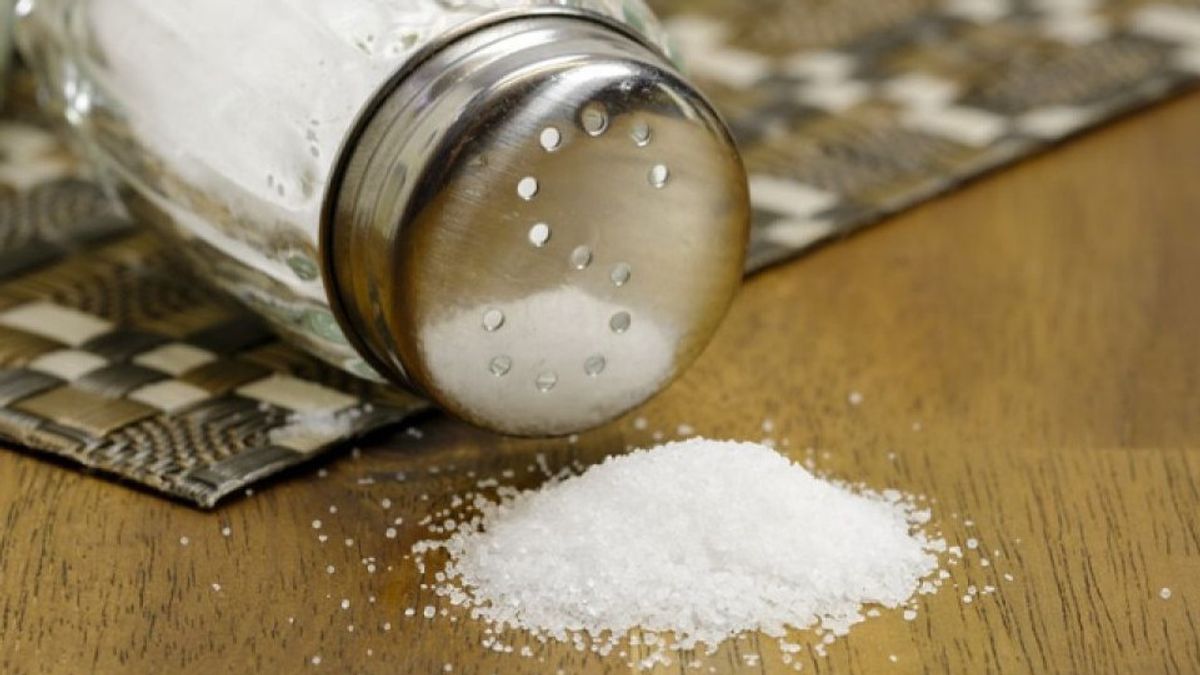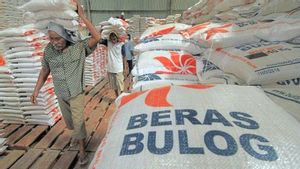JAKARTA - The Indonesian Consumers Foundation (YLKI) has asked the DKI Jakarta Provincial Government (Pemprov) to strictly supervise the iodine salt products to ensure food safety.
"I ask the government to supervise and guide producers and consumers who must also be observant in choosing good products to be consumed," said YLKI Researcher Niti Emiliana at an online press conference "Survey Testing of Kadar Yodium and Analysis of Packaging Label on Consumption Salt in DKI Jakarta" in Jakarta, quoted from Antara, Saturday, February 3.
Niti explained that the government needs to provide firmness in monitoring processed foods that are circulating both in a pre market with a positive response, so that processed foods received by the public can be guaranteed safety.
Second, for producers, it is recommended to prioritize consumer safety by only choosing the best raw materials in carrying out the production process.
Then, producers carry out a quality control control process by including distribution license numbers, expiration dates, nutritional value information and information on halal products.
"This is in accordance with the Regulation of the Minister of Health (Permenkes) 30 of 2013 concerning the obligation of producers to include information on nutritional value labels on processed food packaging and the BPOM regulation No. 31 of 2018 concerning Processed Food Labels," he explained.
Third, for sellers, sellers must ensure that the products they market are safe products, make sure the product has a distribution permit, in packaging there are nutritional value information labels, expiration date labels and labels for halal product information according to Permenkes regulations.
Fourth, for consumers, make sure the processed food products purchased are products that are safe and of good quality.
Meanwhile, regarding the survey, he explained, this was done by YLKI from August to December 2022 with a sample of 70 products through label analysis and iodine testing using the titration method.
The purpose of the survey is to find out the levels of iodine in salt circulating in the community, and to know the packaging of salt products ranging from halal labels, beryodium labels, expiration, to distribution permits.
SEE ALSO:
The sample criteria consist of two criteria, namely the inclusion criteria consisting of fine salt, brick, or roughness sold in the DKI Jakarta area and salt in the consumption salt category.
"The survey findings show that areas with salt products that do not meet the Indonesian National Standard (SNI) are the highest in North Jakarta at 33.33 percent," he explained.
The requirement for quality parameters for iodine content is at least 30 parts per million (ppm) or not less than 30 milligrams per kilogram (mg/kg).
The second finding is that 8.6 percent of salt products do not have a information label on sodium salt,
Third, as much as 21.4 percent of consumption salt products circulating in DKI Jakarta have iodine levels below the SNI standard.
The English, Chinese, Japanese, Arabic, and French versions are automatically generated by the AI. So there may still be inaccuracies in translating, please always see Indonesian as our main language. (system supported by DigitalSiber.id)
















